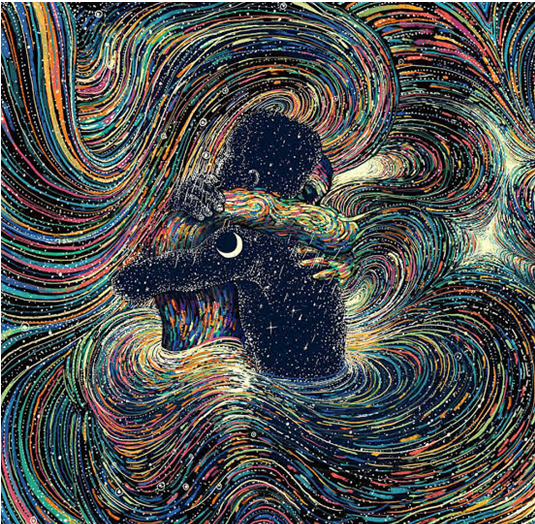


Are we really capable of love? How do we know if someone really loves us? People give us gifts, they say nice things to us, they go out of their way for us, they are faithful to us, they show their respect for us, they stop people from talking ill about us, they praise us to others… And we too, do the same for the ones we love. Don’t we?
But is all this really true love? Or, is it just an expression of love? These actions might not arise out of love at all. Real love is beyond expression. An animal can love you in it’s own way, and you would know. Love manifests in different forms, and people cannot see much of this. Even anger and hatred are forms of love for the opposite.
Often, we gauge love through meaningless, momentary gestures that need to be repeated and outdone constantly, day-after-day, in today’s fragile relationships. Ironically, Valentine’s day, purportedly the celebration of endless love, has gradually morphed into a seven-day jamboree filled with hollow expectations, where young men and women desperately attempt to prove their undying love for each other through pointless gestures like hugs, chocolates and roses. Instead of happiness and love, stress and anxiety abound in these young and desperate, culturally hypnotised youth, through one of the most profitable advertising campaigns ever!
Love is our essence. It is the nature of consciousness. Those who love themselves are warm and capable of sharing great love. They don’t need to prove their love to another through a seven day ritual of hugs, chocolates or roses. Sadly, people who feel that they are incapable of loving others are the unhappy ones seeking validation through these gestures. They don’t really love themselves, and feel afraid of true intimacy. A flurry of meaningless gifts and gestures thus covers their innate awkwardness.
Declaring oneself incapable of loving or being loved is harsh self-judgement. It arises out of deep-rooted self-hatred, often stemming from some childhood trauma, and from blaming oneself for being at fault for something that one wasn’t responsible for. More often than not, these feelings- of being incapable of loving or being loved- arise in ignorance of our real nature. Meditation cleanses this wrong-thinking.
In ancient India, sex and romance were considered just the initial stages of a greater understanding of love. The wise sages recognised that love consists of a series of five stages which an individual must go through to attain complete understanding of love.
“Kama,” or sensory craving, is often translated as sexual desire. However, the wise sages insisted that one can never achieve emancipation through the act of sex alone. Sex without true intimacy will surely leave us feeling empty and unfulfilled.
“Shringara”, the next stage, is romance and erotic attraction. Lovers seeing one another as embodiments of their cravings, sharing secrets, making up affectionate names for one another, playing games, and giving creative gifts. This imaginative play of love is symbolised by Radha and Krishna.
“Maitri,” or keeping love alive through sweet, small gestures is the third step. Be it a surprise gift, a random loving caress, sharing an intimate, secret glance or stolen moment in a crowd. Or even an innocent, simple act of kindness at random can endear one to their lover.
“Bhakti,” or complete unquestioning devotion comes next. Watching your lover waking up, walking on tiptoe so as not to awaken or disturb them, wearing their clothes, or colours and clothes they love, watching a movie they love, enjoying what they like, cooking a meal just the way they like it. True Bhakti to one’s lover isn’t slavery and giving up of one’s own personality, but a powerful personal choice made out of love.
“Atma-Prema,” or unconditional self-love is seeing oneself in one’s lover and one’s lover in oneself. It is the final stage. In the Brihadaranyaka Upanishad, Yajnavalkya shares with Maitreyi, his wife, “Know that a wife loves her husband not for his sake but for her own sake, for the sake of the Self. In loving him she loves the One who is both in her as well as in him. It is really this One whom she loves. Similarly it is so for the husband…”
“The river that flows in you, also flows in me,” says Kabir. In deepest intimacy, lovers lose themselves in each other. They become one, having merged completely. A Hindi film song echoes this thought,
“ye waqt na kho jaaye, bas aaj ye ho jaaye…
main tum mein samaa jaaun, tum mujh mein samaa jaao…”
True lovers aren’t two individuals anymore, but one single wholeness.
Deepam Chatterjee is the author of The Millennial Yogi. He can be contacted on deepamchatterjee@yahoo.co.in